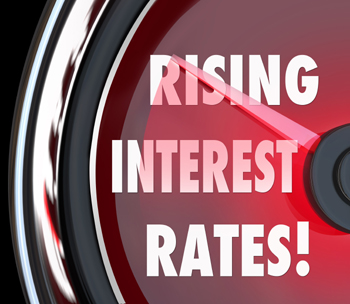You have head on the news about interest rates heading up. If you are looking for a house,  you are probably wondering about mortgage rates. After hitting a four-month low, Mortgage rates took some baby steps up, however, they continued to hover around the same range they have been all summer, a report by Freddie Mac indicated.
you are probably wondering about mortgage rates. After hitting a four-month low, Mortgage rates took some baby steps up, however, they continued to hover around the same range they have been all summer, a report by Freddie Mac indicated.
The 30- year fixed- rate mortgage averaged 4.52 percent last week, a slight improvement from the previous week when it averaged 4.51 percent. The 30- year fixed- rate mortgage averaged 3.82 percent, the same week a year ago.
In a press release by Freddie Mac, Sam Khater, its chief economist said, “The 30- year fixed- rate mortgage barely inched up this week, continuing the summer trend of essentially being flat.”
He added, “While sales and price growth have softened these last few months, this leveling of rates may be helping more buyers reach the market. Purchase mortgage applications this week were once again modestly above year ago levels.”
Down 1 basis point from the previous week, the 15- year fixed- rate mortgage averaged 3.97 percent this last week. The same week a year ago, the 15- year fixed- rate mortgage averaged 3.12 percent.
At a 3.85 percent average, the five-year Treasury- indexed hybrid adjustable- rate mortgage underwent the most change, moving up 3 basis points. The same week a year ago, the five- year adjustable- rate mortgage averaged 3.14 percent.
“Mortgage rates drifted upwards over the past week as financial markets rallied on news that the United States and Mexico have agreed to the broad outlines of a new trade agreement,” Zillow’s senior economist, Aaron Terrazas said.
As Rates Slip, Weekly Mortgage Applications Decline
Potential homebuyers have been left frustrated this summer by weakening affordability, a factor affecting the entire mortgage market.
According to the mortgage Bankers Association’s seasonally adjusted report, total mortgage application volume declined 1.7 percent in the last week, and was 15 percent lower than a year ago.
The mortgage business should have been boosted be it by a small margin by a drop in mortgage rates, but unfortunately it wasn’t.
The market experienced a decrease in the average contract interest rate for 30-year fixed-rate mortgages with conforming loan balances ($453, 100 or less) from 4.81 percent to 4.78 percent, the lowest it has gotten since the week ending July 20, with points increasing from 0.42 to 0.46 (inclusive of the origination fee) for those loans whose down payment is 20 percent.
Ruth Schoenherr is a mortgage broker who will help you find home loans in the Clearwater, Palm Harbor, Largo, Safety Harbor, St Petersburg and Tampa Bay area. For more information, go to her web site at www.ClearwaterMortgageBroker.net




